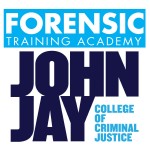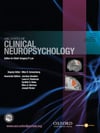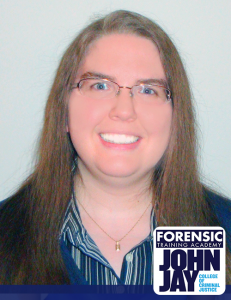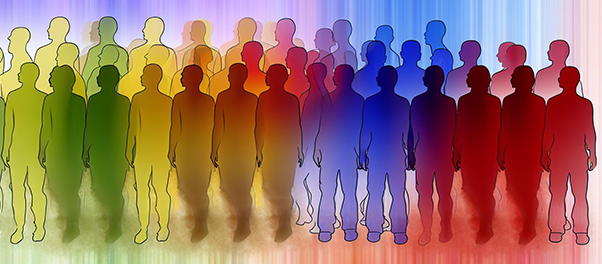
This study on the state of the practice in forensic neuropsychological assessment provides key insight into accepted and well-validated instruments commonly used in forensic assessment. This is the bottom line of a recently published article in The Clinical Neuropsychologist. Below is a summary of the research and findings as well as a translation of this research into practice.

Featured Article | The Clinical Neuropsychologist | 2017, Online First Publication
Toward generally accepted forensic assessment practices among clinical neuropsychologists: a survey of professional practice and common test use
Authors
Casey LaDuke NYU-Langone Medical Center, Comprehensive Epilepsy Center, New York, NY, USA; Department of Psychiatry and Neurobehavioral Sciences, University of Virginia Health System, Charlottesville, VA, USA
William Barr NYU-Langone Medical Center, Comprehensive Epilepsy Center, New York, NY, USA
Donald L. Brodale Department of Sociology, Brooklyn College of The City University of New York, Brooklyn, NY, USA
Laura A. Rabin Department of Psychology, Brooklyn College and The Graduate Center of The City University of New York, Brooklyn, NY, USA
Abstract
Objective: This study investigated professional practice and common test use among clinical neuropsychologists engaging in forensic assessment.
Method: Doctorate-level psychologists active in the practice of neuropsychology and on the INS and NAN membership listings (n = 502) were surveyed about their demographics, professional practice, and common test use. Participants who reported engaging in forensic practice (n = 255) were further surveyed about their forensic practice.
Results: Forensic participants were more likely to be male and Caucasian, and reported higher ages, more years of professional experience, and a higher prevalence of board certification. While characteristics of their professional and forensic practice varied, forensic participants reported spending most of their professional time conducting neuropsychological assessments with adult clients in a private or group practice setting, focusing on civil referrals and civil legal questions involving older adult issues, developmental issues, head injury, and psychiatric issues. Common test use across neuropsychological assessment domains is presented for board-certified forensic participants (n = 77). An examination of these results reveals that the current pattern of test use is similar to the results of a more general survey of neuropsychological test use.
Conclusions: The findings provide insight into the practice of forensic neuropsychological assessment, and further establish the admissibility of neuropsychological evidence in the United States legal system. Results will be useful for clinical neuropsychologists, field leaders, and legal professionals hoping to gain insight into the role of clinical neuropsychology in civil and criminal legal decision-making.
Keywords
neuropsychological assessment; forensic assessment; test use; practice; admissibility
Summary of the Research
“Clinical neuropsychologists are psychological practitioners with specialized training and experience in the science of brain-behavior relationships… Prior survey research and professional commentaries highlight forensic neuropsychology as a rapidly developing subspecialty among clinical neuropsychologists. By definition, forensic neuropsychology is the application of neuropsychology to legal issues that arise in civil and criminal proceedings, and a forensic neuropsychologist is a neuropsychologist who provides opinions in a legal setting. Forensic practice is common among clinical neuropsychologists and accounts for a significant source of income.” (p. 1-2).
“Given the importance of general acceptance and the use of well-validated methods to the admissibility of expert evidence in the United States legal system (Daubert v. Merrell Dow Pharmaceuticals, Inc., 1993 [i.e. the Daubert standard]; Frye v. United States, 1923 [i.e. the Frye standard]), it is imperative to track common practices among neuropsychologists engaging in forensic assessment… The current study is a representative survey of clinical neuropsychologists engaging in forensic practice in North America, including items specific to their common test use.” (p. 2). “Participants in the current study sample therefore consisted of 502 doctorate-level psychologists active in the practice of neuropsychology and on the INS and NAN membership listings who responded whether they engaged in forensic practice” (p. 3).
“The current survey described the demographic characteristics of clinical neuropsychologists who engage in forensic practice. Compared to their non-forensic peers, forensic participants were more likely to be men. Consistent with their non-forensic peers, forensic participants were predominantly Caucasian. The reported disparities in gender and cultural identity among forensic participants are not surprising based on prior demographic data on neuropsychologists engaging in forensic practice. The current results reinforce the need to increase gender diversity in forensic neuropsychological practice specifically (particularly among board certified practitioners) and ethnic diversity in clinical neuropsychology generally, in part to ensure effective and ethical practice in forensic neuropsychological assessment.” (p. 12).
“Specific to their forensic practice, participants appeared to work with a higher proportion of civil referrals than criminal referrals, particularly among boarded forensic participants. Relatedly, civil legal questions were generally the most frequently reported forensic referral questions (i.e. personal injury, neurotoxic exposure, medical malpractice, testamentary capacity), followed by criminal legal questions (i.e. insanity, competence to stand trial or confess, and capital mitigation). These results generally support previously reported trends in forensic practice among clinical neuropsychologists… Common test use among practitioners board certified in neuropsychology and related fields was described across domains and methods relevant to contemporary neuropsychological assessment. The current results appeared broadly consistent with test use among general neuropsychologists described in prior research. This finding appears consistent with the guidance of both field experts and ethical authorities that practitioners should seek to apply the most valid and reliable assessment procedures and tests available, such that clinical practices need to change little in forensic assessment” (p. 16-17).
Translating Research into Practice
“Understanding common and well-validated practices plays a vital role in the development of forensic neuropsychology as a professional practice, and is a foundational aspect of the admissibility of neuropsychological evidence in civil and criminal legal proceedings. This study appears to be the first to investigate common test use among a representative sample of clinical neuropsychologists engaging in forensic practice. The results therefore represent an important step toward further understanding forensic assessment practices among clinical neuropsychologists, and further establishing the admissibility of neuropsychological evidence in the United States legal system.” (p. 10).
“The current findings appear to support the admissibility of neuropsychological evidence in legal decision-making. Specifically, the data highlight tests commonly used by neuropsychologists engaging in forensic assessments, which clearly speaks to the general acceptance criteria that is included in both Frye and Daubert standards and their various state and federal applications. Results also demonstrate the variety of tests used by neuropsychologists engaging in forensic assessments, which itself speaks to the core characteristic of forensic neuropsychological practice being based on a number of well-validated methods that appear to be implemented at both higher and lower frequencies. As such, the use of well-validated and lower-frequency tests in forensic neuropsychological assessments would also likely be admissible in jurisdictions applying either the Frye standard (i.e. general acceptance) or Daubert standard (i.e. general acceptance, falsifiability, peer-review, and known error rates). Overall, the current study further supports the admissibility of evidence obtained through clinical neuropsychological assessment in legal decision-making by providing data about generally accepted forensic assessment practices among clinical neuropsychologists” (p. 17).
Other Interesting Tidbits for Researchers and Clinicians
“Forensic and non-forensic participants appeared similar in their reported degrees and areas of specialization, though participants engaging in forensic practice reported more years of professional experience and a higher prevalence of board certification through a neuropsychology-related board. Given the legal standards of admissibility and increased scrutiny required in forensic assessments, it may not be surprising if neuropsychologists engage in forensic assessments after obtaining the level of mastery and fluency that comes from years of specialized training and experience in neuropsychology. Further, given the evolving conceptualization of board certification as the standard for competence to practice clinical neuropsychology and the standards set for the admissibility of neuropsychological evidence, it may not be surprising if neuropsychologists with board certification feel more capable or confident to engage in forensic practice. It will be important to track the prevalence of board certification among clinical neuropsychologists engaging in forensic practice, as this may come to represent a practice standard (real or perceived) among practitioners and legal professionals that could significantly impact the practice of forensic neuropsychological assessment” (p. 13).
Join the Discussion
As always, please join the discussion below if you have thoughts or comments to add!







